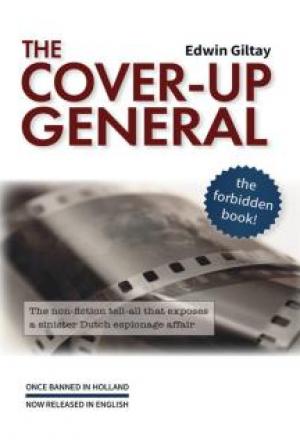FOOTNOTES:
[1] Clergymen, he intimated, must not be put forward to do it, as in that case Mr. Garrison would have a handle by which to repel the attempt; but laymen must be sought out and employed for the purpose.
[2] “Of Mr. Garrison I will say, as the Pope said of his minion, I will absolve him of all the sins he ever has committed, or ever will commit.”—Speech of Mr. St. Clair in 1837.
[3] A scheme so called, for benefiting the colored race, without giving offence by the mention of Freedom, or Human Rights.
[4] For the terms of this contract and the occasion of its necessity, see pages 10 and 47.
[5] The following resolution, submitted to the business Committee in the hand-writing of Mr. Stanton, will explain the use which was to have been made of Mr. Garrison’s answer, had the plot succeeded. “We shall thus,” said one, “get rid of the Non-Resistants and the women.”
“Resolved, That every minister of the gospel is bound to preach against slavery; that every member of a Christian Church is bound to have no fellowship with this unfruitful work of darkness; that every ecclesiastical body is bound to purify itself of these abominations; and that every person entitled to the elective franchise, is bound not only to refrain from voting for persons as national and state officers, who are unwilling to use all their authority for the immediate abolition of slavery, but is BOUND AT EVERY ELECTION, TO REPAIR TO THE POLLS, and cast his vote for such men as will go to the verge of their official authority, for its instant annihilation; and that every member of an Anti-Slavery Society, who refuses, UNDER ANY PRETEXT, thus to act morally or politically, or counsels others to such a course, is guilty of gross inconsistency, and widely departs from the original and fundamental principles of the Anti-Slavery enterprize.”
[6] Those women of the Boston Female Society who had long seen a tendency in the conduct of the New York Committee to injure the Massachusetts Society, had taken pains to have their customary annual appropriation to the cause pledged through the Massachusetts treasury, in anticipation of this very contingency. Their surprise was proportionately great at the ingenuity with which their contribution was made discreditable to the Massachusetts Society and to themselves, by the incorrect assertion that it had been made in consequence of Mr. Stanton’s labors.
[7] Most of the business of this Society had, from the beginning, been transacted in Special Meeting, and almost the only power granted to the Board of this Society by its Constitution, is this, of calling meetings. The Constitution expressly states that “the President and other officers ARE AUTHORIZED to call special meetings,” while there is not a syllable which authorizes them to refuse.
[8] Speech of Samuel Reed, of Abington.
[9] Right and Wrong in Boston, written in 1835.
[10] See Paul to the Galatians, from which epistle it appears that the Christian cause had then reached a stage in its progress where it was beset with the same difficulties as the anti-slavery cause at present meets. It had so diminished the trust in the existing institutions, and so strengthened the reverence for principles, that many professing Christianity, were driven back into Judaism.
[11] Better, far better, said the organ of the clerical appellants in 1837, that slavery should remain perpetual, than that the existing institutions with which it is so intimately interwoven, should be disturbed. To most minds comes this moment of distrust of the principles of righteousness—want of faith in God. Orange Scott, who then stood firm, has in this last crisis, deserted the cause, moved by the same temptation. When he sees Church and State shaken by the advent of righteous and free principles, “upon the earth distress of nations with perplexity—the sea and waves roaring—men’s hearts failing them for fear, and for looking after those things which are coming upon the earth,” he says—“Slavery is the least evil of the two.” With propriety might he be asked, with what feelings would the slave of the Louisiana sugar cauldron contemplate the utter destruction of the civil and ecclesiastical arrangements by which he is crushed, soul and body? Would he say better, far better that slavery should remain perpetual as “the least evil of the two?” Yet we are commanded to remember those in bonds as bound with them. However deep may be our attachment to institutions, we must do right, in the faith that righteousness can destroy no good thing.







